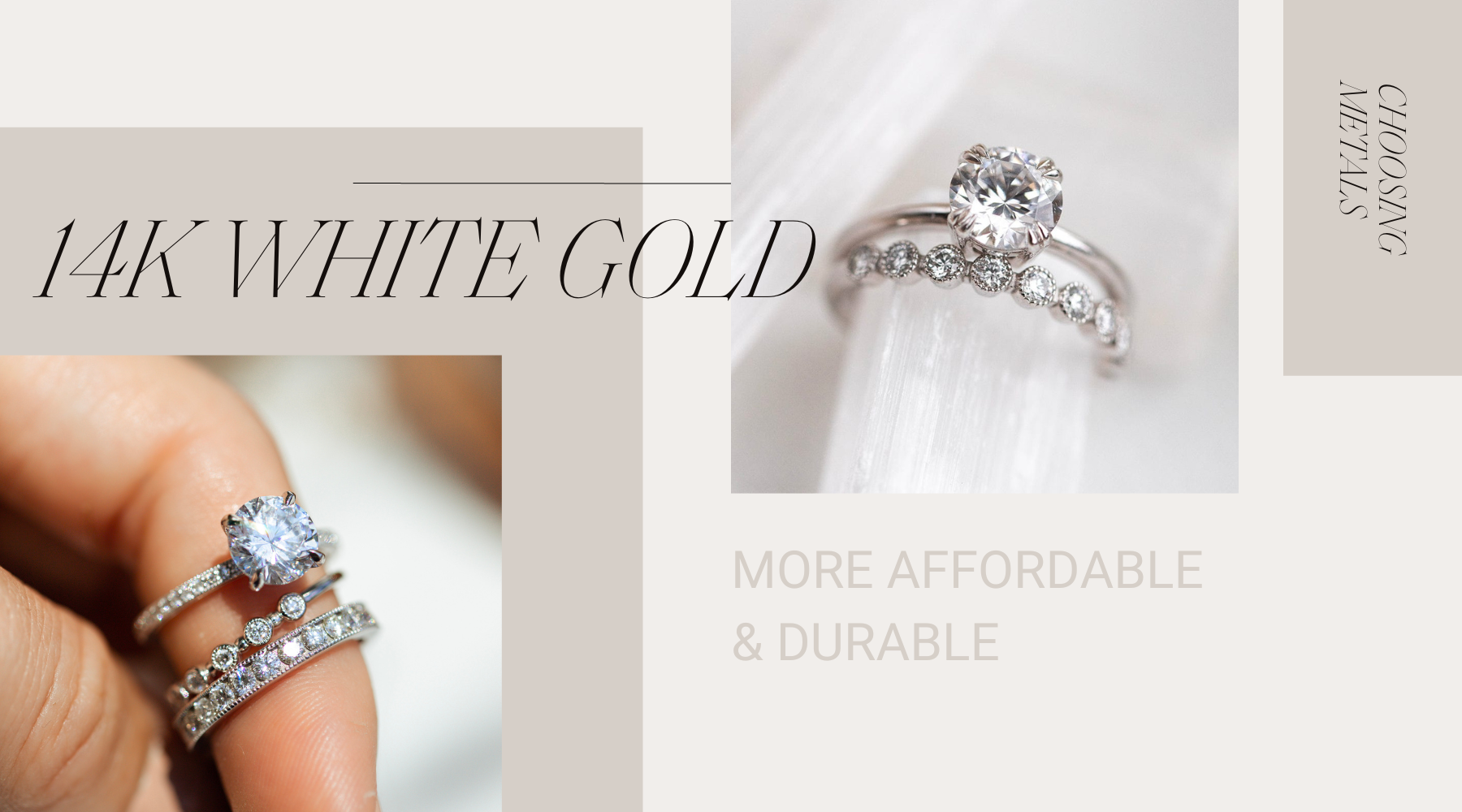We're here to simplify all of your jewelry questions, and this guide will give you everything you need to know about the differences between platinum vs. 14k and 18k white gold.
When choosing the right metal for your engagement ring or everyday fine jewelry, it is truly a matter of personal preference, but our hope is that this guide will give you a bit of direction as to which metal makes the most sense for your lifestyle.
As you read along, keep in mind that we offer both platinum as well as 14k or 18k gold options for all of our Signature Collection engagement rings, so whichever speaks to—we've got you!
Platinum

Platinum is denser and considered a more "luxurious" metal. Compared to 14k gold, it is more hypoallergenic due to its purity of metal. The composition is approximately 96% platinum and 4% ruthenium. However, this purity is what makes platinum more costly.
When it comes to its appearance, platinum does tend to scratch a bit more easily than gold. Over time, platinum can look more matte gray, white or silver. But with a bit of polishing it will look completely renewed!
Platinum is not rhodium-plated, which is one benefit because it retains its whiteness without plating.
One of the main reasons to choose platinum is if you're looking for something more hypoallergenic. You may also consider platinum if you wish to have a more pure metal.
14k White Gold

At Consider, our 14k white gold is a blend of gold and alloy metals with about 59% pure gold. We rhodium plate all of our white gold, whether it's 14k or 18k. The rhodium coating is a layer of rhodium, which maintains the sparkly appearance, while also helping the gold appear more white.
The rhodium plating will need to be renewed over time in order to keep its shine. When this needs to be done depends on the wearer.
One reason to choose 14k gold is because it is more affordable compared to platinum. If you are an active person, 14k gold is also a more durable option, as you'll find out below!
18k White Gold

Also a blend of gold and alloy metals, 18k white gold is made up of about 76% pure gold. 14k white gold is more durable than 18k white gold because it is made up of more metal alloys, which makes it stronger. If the wearer is an active person, you'll want to go with 14k white gold.
If you prefer white gold in general, but prefer something with a purer blend of gold, then go with 18k white gold.
While this guide may help answer some of your questions about metals, the best way to know what you want is to visit our storefront in 12 South or East Nashville and have a look for yourself. We are also happy to answer any questions via email at hello@considerthewldflwrs.com. See what metal looks and feels best to you—after all, we want you to love your fine jewelry for years and generations to come!
